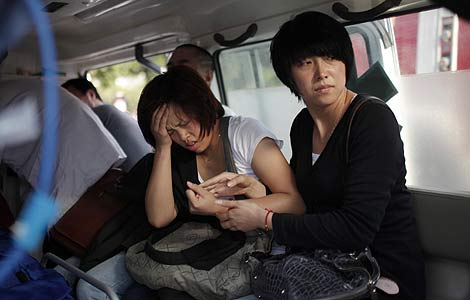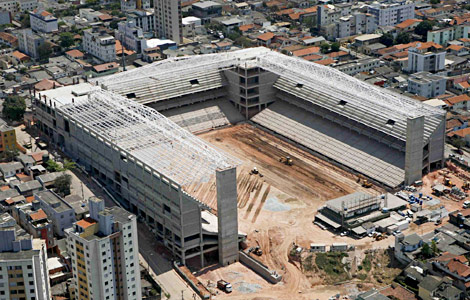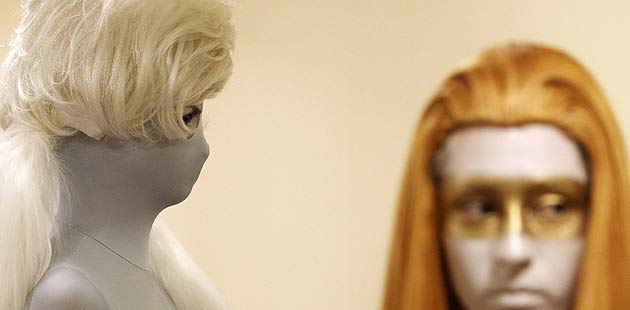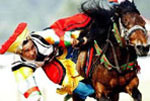Civilians given chance to reach for the stars
Updated: 2011-09-29 08:09
By Xin Dingding (China Daily)
|
|||||||||||
Mission team to be expanded by 2020; first female astronaut may debut next year
JIUQUAN, Gansu - Officials in charge of astronaut recruitment say civilians could soon get the chance to compete for a place on a spacecraft.
Bai Yanqiang, deputy chief of the program's astronaut system, said the astronaut team now has 20 members, but that number will be expanded to 30 once a space station is in place in about 2020.
They will be professional astronauts working as captains and engineers, he said, adding that they can work for two decades as long as they stay physically and mentally fit.
"In the future we'll also select civilians as astronauts, according to the demands of scientific experiments in space," Bai said. "Strictly speaking, they will be passengers. They won't need to learn how to pilot a spacecraft, nor will they need to do extravehicular activities."
All Chinese astronauts have so far been selected from the military, as experts believe servicemen and women are more physically fit for missions.
The manned space program recruited 14 men from the air force in 1997 as the first batch of reserve astronauts, and selected five men and two women in 2010 as the second group.
Bai said the selection process for civilian astronauts will not be as strict, but the candidates will still need to meet physical requirements, as well as be clear of pre-existing conditions, such as nose, spine, heart or mouth problems, digestive ulcers or extreme shortsightedness.
Candidates will also need to go through more than one year of training before takeoff, mainly focusing on preparing them physically for space and teaching them skills to handle possible emergencies, he said.
He did not give a timetable for the recruiting of civilian astronauts.
The first batch of reserve astronauts is now busy preparing for next year's rendezvous and docking mission between Tiangong-1 and a manned spacecraft.
Tian Liping, an astronaut training official, said the team, which includes some members that have already been on space missions, is being trained in how to use manual docking mechanics. Each member is expected to master the skill by practicing in a simulator at least 1,000 times.
The simulation requires trainees to control two handles to adjust the position of the spacecraft so that it docks with Tiangong-1. They also learn how to deal with different emergencies.
The two female astronauts recruited last year were also involved in basic training on the rendezvous and docking of spacecraft, Tian said.
Wang Xianmin, deputy chief designer of the astronaut system, added that one of the women will go on to be the first Chinese woman in space. "China's female astronaut will go into space aboard the Shenzhou X next year at the earliest," he said.
According to the plan, the manned Shenzhou X spacecraft will launch next year and dock with Tiangong-1. Astronauts will stay in Tiangong-1 for about 15 days.
If the docking of the unmanned Shenzhou VIII and Tiangong-1 succeeds later this year, the Shenzhou IX could also be manned, with two to three men on board to practice docking in both automated and manual modes, Wang said.
China Daily
Hot Topics
Libya conflict, Gaddafi, Oil spill, Palace Museum scandal, Inflation, Japan's new PM, Trapped miners, Mooncake tax, Weekly photos, Hurricane Irene
Editor's Picks

|

|

|

|

|

|






